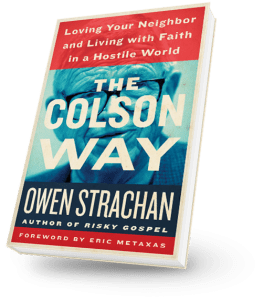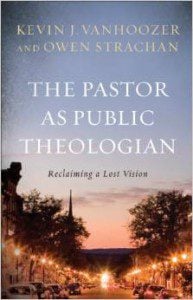 Just read through the USA Today op-ed piece by Jonathan Merritt, a young evangelical leader. A talented writer, Merritt started an evangelical climate change initiative that drew the signatures of many movers and shakers a few years back.
Just read through the USA Today op-ed piece by Jonathan Merritt, a young evangelical leader. A talented writer, Merritt started an evangelical climate change initiative that drew the signatures of many movers and shakers a few years back.
In his piece, entitled “New Form of Christian Civic Engagement,” Merritt makes the case that a new evangelical political theology is upon us. It’s more moderated than years past and is focused less on abortion and more on creation care and social justice. It’s good to see a young Christian thinker get some press in a major cultural outlet. I thought I would very briefly engage Merritt’s ideas, which are part of his book project that has just released. I’m not going to quote him extensively, as I’ll assume you’re going to read the short piece.
[Update: As a friend from the Institute on Religion & Democracy pointed out, Merritt refers to the 2001-07 Pew polling data of young white evangelicals to make his point. But the 2011 poll actually showed a 15% jump among white young evangelicals as those identifying with the GOP. Intended or not, this is a pretty major omission, and it counters his entire narrative.]
1. Merritt is surely right, sociologically, that a new wing of evangelicalism has cropped up that is not politically conservative. This surely includes some young people, perhaps a good chunk.
2. It is not surprising that attendees at the Q conference would not register with one party or another. If you accept my first point–and if you have heard of the emergent movement, you are obligated to do so–then it will not surprise you to hear that a sizeable portion of the folks who go to Q are either apolitical, politically moderate, or even liberal in their politics. Of course, a good chunk of those who don’t identify with a party–which is what Merritt zeroes in on–would still support traditional marriage and be against abortion.
In other words, I’m not sure that this statistic offers much payoff for Merritt. The same week that around 1000 people went to Q, 8000 went to the Together for the Gospel conference in Louisville. Many of them were young. I would wager that a vast majority of them are politically conservative. So what does this battle of the statistics tell us, ultimately? Not much.
3. You don’t need to agree with everything or even a lot of what James Dobson and Tony Perkins have stood for. But it seems pretty uncharitable as an evangelical to slag off other evangelicals in the mainstream press. For the record, I’m thankful for much of what Dobson has done. I don’t know Perkins well, but I’m thankful that Christians have an active and convictional voice in DC. As for whether their power is waning, well, that may be true in Dobson’s case. He is in his upper years, after all. Perkins seems to have quite a bit of influence, though.
4. Merritt is doubtless right that “Christians’ partisan, divisive and uncivil engagement in the public square” has had some negative effects. I am not a “culture warrior.” With many others like me, I want Christians to first love God and his gospel. I want them to love their local churches and see them, however humble in appearance, as very important. Beyond that, I want them to passionately though carefully engage the civic and cultural realms.
But while Merritt celebrates the new and more peaceful style of political jujitsu, I’m not by any means willing to write off the previous generation’s work. Fighting abortion-on-demand has been awful. It’s also been worth it. Many good gains have been made, including two rock-solid pro-life Supreme Court justices (and the Chief Justice, who is, pardon the phrase, a baller). How many lives did crisis pregnancy centers save? How many lives did legislative measures in state politics save? How many lives did counselors standing outside of abortion clinics influence? Was all this not worth it because politics is a “blood sport” and some people didn’t like evangelical engagement?
5. I get that some younger evangelicals are politically progressive. Right. That’s clear. But is Merritt aware of the recent stats on campus pro-life groups? In 2006, there were less than 300; now there are over 600. Many of those groups are driven by or drawing young evangelicals, make no mistake (along with young Catholics, Mormons, etc.). What about crisis pregnancy centers, many of which (like the one in Louisville) are staffed by young evangelical volunteers and workers? There are around 2300 of these compared to 500-800 abortion clinics. I don’t have hard data, but surely there is some significant young evangelical movement in these areas!
6. I’m not sure, finally, that there’s much new in this piece by Merritt. If you heard of unChristian by Dave Kinnaman and Gabe Lyons, you’ll know that they raised many of these points five years ago. In fact, they said almost exactly the same thing. I engaged their work in a review. One of my major concerns was this: Jesus said that we are blessed if we are hated for his sake (Matthew 5:11). We shouldn’t go out of our way to be hated, of course. But clearly the beatitudes and the fact that Christ (like most of his apostles) was murdered tells us something about the way outspoken biblical fidelity will be handled in this word. To quote Daniel Craig in Casino Royale: “Not well.”
There are some quick responses. Merritt may be right that the younger generation is different than the previous one. But there are many of us who are determined not to let “fetus fatigue” submarine our conscience. We love all our neighbors, but we are unwilling to see traditional marriage redefined without a profound and sustained response. We will not lose our souls over politics, and we will love our local churches and the gospel they guard and the kingdom they promote. We will not be silenced, though, by calls for peace that will in reality bring no peace, but rather death, and more death.
I always appreciate a critical new voice, and I think Merritt’s piece raises some good questions. But when it comes to answers in this modern moment, many of us will hew to older paths, including, if need be, the path toward a cultural cross.











